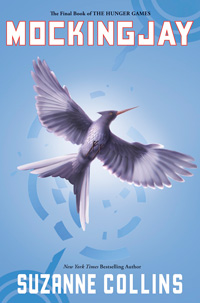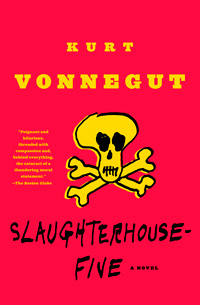Book reviews (March – April 2012)
Mockingjay
By Suzanne Collins
 Reviewed by Renzo San Juan
Reviewed by Renzo San Juan
15, Belmont HS
After reading all three books in The Hunger Games trilogy by Suzanne Collins, I can say that Mockingjay is the best. After being addicted to The Hunger Games and Catching Fire, I devoured Mockingjay, wanting to know how the story would end. I carried the book everywhere I went, even to school and the restrooms.
In the first book, 16-year-old Katniss Everdeen volunteered to fight in the Hunger Games in place of her sister. The Hunger Games is a televised event that picks a boy and a girl from each of the 12 Districts in the country of Panem. The Capitol, a powerful city that rules the districts, sends the kids into an arena where they will fight each other to the death for the entire country to see. Katniss comes home victorious. In the second book, Katniss has to go back to the arena again.
Katniss, who is now 17, starts off Mockingjay by visiting the ashes of her hometown, District 12, which the Capitol destroyed. She takes an airship to her new home in District 13, which people believed had died out decades ago when the Capitol bombed them as well. It turns out that they’ve been running an underground society that’s planning to start a rebellion. District 13 is led by the stern President Coin. She intends to spread the rebellion to all the other districts so they can overthrow President Snow, the leader of the Capitol. She decides to use Katniss to spread ideas of rebellion to the other districts. Katniss is reluctant at first, but is eventually convinced. With that, Katniss goes around to the other districts carrying out missions with her companions to free Panem from President Snow’s rule.
Mockingjay tackles more mature themes like politics and propaganda. District 13 creates ads that feature Katniss doing heroic acts like saving people from the Capitol’s attacks. I noticed that propaganda is an effective and dangerous way to influence people. Also, there is a lot more violence. In one mission, Katniss and her companions are sent to a hospital under attack by the Capitol. Jets drop bombs on the hospital, killing children and adults, while her team returns fire, trying to protect them. There are so many lives at stake that I often cringed in the life-or-death situations.
It’s also not as plot-driven as the other books. It delves more into the background of District 13 and what’s going through Katniss’ mind as she’s acting out the rebellion. She constantly worries about the safety of her family and friends and how they will survive after the rebellion.
Mockingjay ends the series perfectly. Fans of the trilogy will not be disappointed. As for the new Hunger Games movie, all I can say is: Let the games begin.
l
Slaughterhouse-Five
By Kurt Vonnegut
 Reviewed by Araceli Gutierrez
Reviewed by Araceli Gutierrez
16, Cleveland HS (Reseda)
Slaughterhouse-Five by Kurt Vonnegut is my favorite book. A science-fiction book isn’t something I would normally consider reading, since I usually read young adult novels or fiction that doesn’t involve aliens. But as soon as I finished the first chapter, I was hooked.
The novel centers on the curious life of Billy Pilgrim: an unlikely American soldier who is “tall and weak, and shaped like a bottle of Coca-Cola.” Billy is captured by the Tralfamadorians (aliens) on his daughter’s wedding night and after that travels back and forth in time. Billy is aware that he is time traveling and tells others including his daughter. Yet she finds it hard to believe and sees him as a lunatic.
Although Billy begins his time traveling later in life, the novel begins in 1943, when Billy is drafted to serve in World War II. He is taken as a prisoner by the Germans. Suddenly, Billy becomes “unstuck in time” and travels to a moment from his childhood—when his father tried to teach him to swim.
It bothered me for a while not knowing if he was really time traveling or just imagining it. Yet as I read more, I believed in Billy’s time traveling and became more fascinated by him. He tries so hard to convince others that everything he says is true. Billy’s isolation from others, like his daughter, upset me. I know it’s a good book once I feel for the characters and Billy is one of my favorite characters out of all the books I’ve read. Billy’s kindness, like saving a fellow recruit and risking his life for others, even though they treated him with insults, made him stand out.
The way Vonnegut writes about the realities of war, like the brutal winter weather that killed soldiers, left me turning the pages for more. Vonnegut was a prisoner of war during World War II. I like knowing that what I’m reading is taken from a personal experience.
I think Vonnegut wrote this book to raise the question of war’s morality. It left me thinking about the destruction that war left behind when Billy and those he knew tried, but couldn’t, go back to their regular lives. Vonnegut made me realize that war is an emotional experience that follows everyone off of the battlefield. Billy changed after the war; he couldn’t let go of his memories of the terrible fighting and seeing other soldiers die. This made me understand his odd behavior and I wished the people in his life could understand him too.
Even though at times you don’t know what to believe, the story is so full of action you won’t mind.

